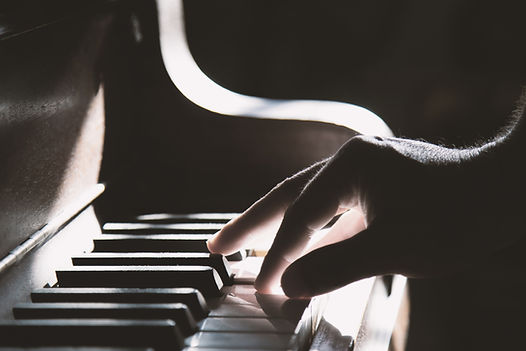
Why Choose Us?
1. Proven track record
2. Accredited program
3. Passionate educator
4. Inclusive environment
Bpp Music and Fine Arts Inc.
Our Mission
To inspire, heal, and empower through music and fine arts. or someone is seeking therapeutic support, we are here to guide you every step of the way.

Keys to emotional and cognitive well-being
Explore how piano playing supports brain health, emotional expressions, and motor skills - from beginner exercises to therapeutic repertoires.
Boosts Brain Power
-
Enhances memory, focus, and problem-solving skills through bilateral brain stimulation (using both hands independently).
-
Studies show it can delay cognitive decline in older adults.
Elevates Emotional
Wellbeing
-
Reduces stress, anxiety, and depression by lowering cortisol levels and releasing endorphins.
-
Provides a creative outlet for emotional express.
Improves Fine Motor Skills & Coordination
Strengthens hand-eye coordination and dexterity, benefiting children's development and adults recovering from injuries.
Sharpens Musical Ear & Discipline
-
Trains pitch recognition, rhythm, and auditory processing - skills that translate to other instruments and languages
-
Builds patience and perseverance through practice.
Enhances Academic Performance
-
Linked to better math and reading skills due to pattern recognition and structured learning.
-
Improves time management through consistent practice routines.
Sparks Creativity & Confidence
-
Encourages improvisation and composition, fostering innovation.
-
Performing builds self-esteem and public speaking skills.
10 Frequently asked Questions (FAQs)
About Playing Piano


Piano for All: Unlock Creativity, Wellness & Musical Joy
From First Notes to Mastery - Reduce Stress, Boost Brain Power & Dis c over the Life-Changing
Magic of Piano
01
What's the best age to start learning piano?
A: Any age! Children (5-6+) develop skills quickly, while adults excel with discipline. "It's never too late."
03
How often should I practice?
A: 15-30 mins daily beats 2-hour weekly sessions. Consistence > marathon practices!
05
Why is my playing choppy?
A: Likely lack of wrist rotation or finger independence. Try "legato" (smooth) exercises with a metronome.
07
What are the easiest songs for beginners?
A: *Twinkle Twinkle*, *Ode to Joy*, or *Fur Elise* (first section). Pop songs with simple chords work too!
09
I keep making mistakes - how do I stop?
A: Mistakes often stem from rushing. Slow down, isolate trouble spots, and use a metronome.
02
Do I need an acoustic piano, or is a keyboard okay?
A: Start with a weighted-key keyboard (88 keys ideal).Acoustic pianos offer richer tone but aren't essential for beginners.
04
How do I improve finger strength/speed?
A: Scales, Hanon exercises, and slow, controlled practice guild dexterity. Speed comes later!
06
Should I memorize sheet music?
A: Helpful but not mandatory. Focus on sight-reading first - memorization comes naturally with repetition.
08
How do I play with both hands together?
A: Practice hands separately first, then combine SLOWY. Break pieces into small sections.
10
How do I stay motivated?
A: Set small goals (e.g., "master 1 line daily") play songs you love, and record progress!
"The piano is a mirror of patience - what you pour into it,
it reflects back."

